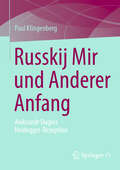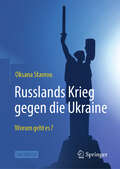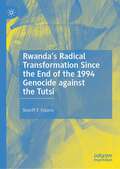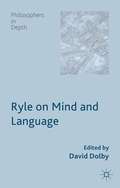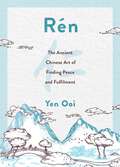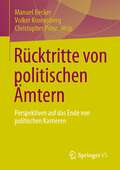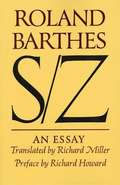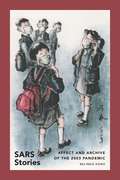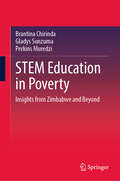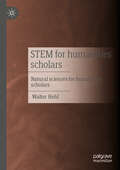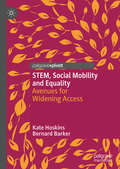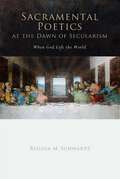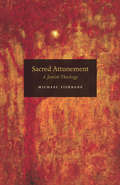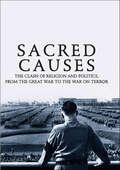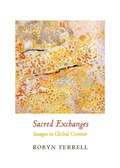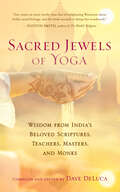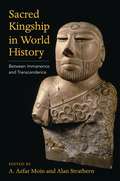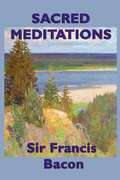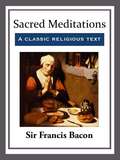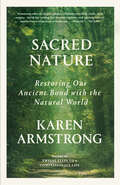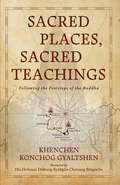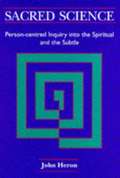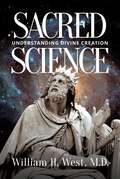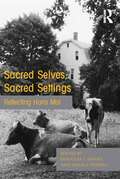- Table View
- List View
Russkij Mir und Anderer Anfang: Alexander Dugins Heidegger-Rezeption als ontologische Rechtfertigung von Russlands kriegerischem Imperialismus
by Paul KlingenbergDie Arbeit befasst sich kritisch mit der Heidegger-Rezeption des Ideologen Aleksandr Dugin. Im Gegensatz zu anderen Interpretationen zeigt Klingenbergs Arbeit auf, dass Dugin ein profunder Kenner von Heideggers Werk ist, das sich auch durch Dugins Vermittlung als hochgradig anschlussfähig für den russischen Faschismus erweist. Zugleich kann eine Kritik dieser Rezeption zu einer Korrektur der in der westlichen Philosophie immer noch wirkmächtigen Apologie eines gewaltsamen, unrettbar mit dem Nationalsozialismus verstrickten Denkens beitragen. Von der „offiziellen“ oder besser gesagt ernstzunehmenden russischen Philosophie wurde Dugins ausführliche Darstellung von Heideggers Philosophie kaum beachtet oder als unseriös abgelehnt. Von daher ist es zu begrüßen, wenn hier eine Arbeit vorgelegt wird, die im Gegensatz zu einer weitgehend positiven Heidegger-Rezeption und -Interpretation in Westeuropa und auch in Russland, wo diese aufgrund der kulturpolitischen Situation in der Sowjetunion erst relativ spät einsetzt, eine Linie in Heideggers Denken aufzeigt, die dessen „völkische“ und latent nationalsozialistische Einstellung nicht als Verirrung oder zeitlich bedingte Einstellung bis zu seiner „Kehre“ einschätzt, sondern als einen Wesenszug seiner grundsätzlich antimodernen, im Grunde faschistischen Philosophie herausarbeitet. (Wolfgang Eismann)
Russlands Krieg gegen die Ukraine: Worum geht es?
by Oksana StavrouDieses Sachbuch bietet eine Einführung in Geschichte und Verlauf des russisch-ukrainischen Kriegs. Durch dieses Buch sollen die LeserInnen: Daten, Fakten und ein allgemeines Verständnis über den aktuellen Krieg Russlands gegen die Ukraine erhalten; die Zusammenhänge zwischen Geschichte, Kultur, Politik einerseits und der Aggression Russlands gegenüber seinen Nachbarn andererseits verstehen; rechtliche, wirtschaftliche und humanitäre Dimensionen des Krieges kennen lernen; neue Entwicklungen rund um den Krieg richtig einordnen können; Wissen über internationale Beziehungen, Völkerrecht sowie Positionierung einzelner Staaten und Organisationen auch über den gegenwärtigen Krieg hinaus ausbauen. Das Buch ist modular aufgebaut. Jedes Kapitel beleuchtet jeweils einen Aspekt des Krieges.
Rwanda’s Radical Transformation Since the End of the 1994 Genocide against the Tutsi
by Sheriff F. FolarinThis book discusses the radical transformation of Rwanda, focusing on the dynamics of its society before and after the genocide against theTutsis in 1994. Through contextualizing the significant changes experienced by the country, it throws searchlights on a number of other African states facing similar challenges. The author analyses Rwanda's challenges of nationhood after the genocide; the vision and will of the country’s leadership; its social programs and strategies for cohesion and national development; the population’s resilience; and its growing regional influence in the twenty-first century. Rwandan society is here considered not only through the lens of existing literature on African politics, but also through direct engagement and fieldwork with local populations, scholars and policymakers. In addition, the book weighs in on narratives of survivors and victims of the genocide to understand and present local dispositions to current realities such as reforms, development plans, inclusive policies and programs, and determine how Rwandans deal with historical identity issues and conflicts. This book will be of interest to students, scholars and researchers interested in Rwandan and African politics, peace and conflict studies, security (strategic) studies, and genocide studies.
Ryle on Mind and Language
by David DolbyThis collection is devoted to Gilbert Ryle's philosophy of mind and language. It features essays from prominent scholars on the topics of category mistakes, hypotheticals, dispositions, emotion, thinking, perception, and the task-achievement distinction.
Rén: The Ancient Chinese Art of Finding Peace and Fulfilment
by Yen OoiA beautiful look at the Ancient Chinese philosophy of Rén and how it can help us with our hectic modern lives.The Chinese character for Rén ? combines the word for 'person' ?and the number 'two' ?, representing human connection. And in the teachings of ancient philosopher Confucius, Rén is the study of our relationship with those around us.In this accessible and beautiful book, Yen Ooi explains the various facets of Rén and explores how this philosophy applies to everything from our relationship with ourselves and the people in our lives, to how we relate to society and the wider world.She shows us how, using the basic principles of Rén and through simple changes to our lives, we can connect better with friends, family and colleagues, become helpful members of society and find fulfilment in ideas of community, justice, morality and compassion.
Rén: The Ancient Chinese Art of Finding Peace and Fulfilment
by Yen OoiA beautiful look at the Ancient Chinese philosophy of Rén and how it can help us with our hectic modern lives.The Chinese character for Rén ? combines the word for 'person' ?and the number 'two' ?, representing human connection. And in the teachings of ancient philosopher Confucius, Rén is the study of our relationship with those around us.In this accessible and beautiful book, Yen Ooi explains the various facets of Rén and explores how this philosophy applies to everything from our relationship with ourselves and the people in our lives, to how we relate to society and the wider world.She shows us how, using the basic principles of Rén and through simple changes to our lives, we can connect better with friends, family and colleagues, become helpful members of society and find fulfilment in ideas of community, justice, morality and compassion.
Rücktritte von politischen Ämtern: Perspektiven auf das Ende von politischen Karrieren
by Volker Kronenberg Manuel Becker Christopher PrinzPolitikwissenschaftliche und zeitgeschichtliche Untersuchungen zu den Karrieren deutscher Spitzenpolitiker*innen beschäftigten sich bislang vor allem mit deren Aufstieg und weniger mit dem Ende von politischen Laufbahnen. Aus welchen Gründen treten Politiker*innen aus dem Amt zurück? Was sind die Hintergründe, Motive und Konsequenzen einer solchen Entscheidung? Müssen Rücktritte zwingend Resultat eines Scheiterns sein oder kann es auch „erfolgreiche“ Rücktritte geben? In diesem Band werden theoretische Grundlagen der Rücktrittsforschung aus rechtlicher und politikwissenschaftlicher Perspektive erarbeitet, Rücktrittskulturen in unterschiedlichen Ländern vergleichend untersucht sowie verschiedene Fallbeispiele in ihren spezifischen Einzelfallbedingungen unter die Lupe genommen.
S/Z
by Richard Howard Roland Barthes Richard MillerPreface by Richard Howard. Translated by Richard Miller. This is Barthes's scrupulous literary analysis of Balzac's short story "Sarrasine. "
SARS Stories: Affect and Archive of the 2003 Pandemic (Sinotheory)
by Belinda KongIn SARS Stories, Belinda Kong delves into the cultural archive of the 2003 SARS pandemic, examining Chinese-language creative works and social practices at the epicenters of the outbreak in China and Hong Kong. As the COVID-19 pandemic has highlighted issues of anti-Asian racism and sinophobia, Kong traces how Chinese people navigated the SARS pandemic and created meaning amid crisis through cultures of epidemic expression. From sentimental romances and Cantopop songs to raunchy sex comedies and crowdsourced ghost tales, unexpected and minor genres and creators of Chinese popular culture highlight the resilience and humanity of those living through the pandemic. Rather than narrating pandemic life in terms of crisis and catastrophe, Kong argues that these works highlight Chinese practices of community, care, and love amid disease. She also highlights the persistence of orientalism in anglophone accounts of SARS index patients and global reporting on COVID-era China. Kong shows how the Chinese experiences of living with SARS can reshape global feelings toward pandemic social life and foster greater fellowship in the face of pandemics.
STEM Education in Poverty: Insights from Zimbabwe and Beyond
by Brantina Chirinda Gladys Sunzuma Perkins MuredziThis book is about Science, Technology, Engineering, and Mathematics (STEM) education in poverty and the lessons we learn from Zimbabwe. The world is driving towards the fourth Industrial Revolution (4IR), where economic growth has been attributed to STEM education. STEM education is vital in this era, where both developed and developing countries are undergo rapid changes. Globally, STEM education has been practised differently in schools and universities. University programs, new school curricula, instructional methods, extracurricular programs, and professional development programs for in-service teachers have been created to cater to STEM subjects. STEM education is envisioned to produce critical thinkers, inventors, creators, problem solvers, innovators, and professionals who will solve the world’s ever-changing challenges, including inequity, food insecurity, climate change, inequality, and poverty. STEM is essential to modern education. Zimbabwe has faced significant economic challenges but has made remarkable strides in STEM education. By examining the successes and challenges of STEM education in Zimbabwe, we can learn valuable lessons about improving STEM education in underserved communities. This book contributes to the international debate surrounding the optimal STEM education for students in underserved schools. It incorporates detailed accounts of STEM education in Zimbabwe schools, shedding light on the challenges students and educators face in impoverished areas. In Zimbabwe, STEM education faces significant challenges such as materials and facilities, pedagogy, policy reform, access, and relevance. Some of the main issues highlighted in this book are the need for more resources, including funding, teaching materials, and adequate laboratories. Effective STEM pedagogy is hampered by an education system that emphasises the curriculum and teacher-centred focus instead of focusing on how students can be taught or learn. Research has shown that in Zimbabwe, STEM teachers must apply inventive pedagogies and suitable learner-centred STEM teaching approaches. As a result, there is a need for more STEM-related programs and courses in schools and universities to improve the opportunities for students to pursue careers in these fields. Another challenge is the need for more awareness about the opportunities and importance of STEM education and interest in STEM subjects among students, which can be attributed to a lack of exposure and understanding of the relevance and importance of these fields in today's world. While lack of resources and other challenges hinder effectiveness, opportunity lies in promising pathways of policy and practice. In Zimbabwe, there is a varying degree of success in the implemented competence-based curriculum, which emphasises inquiry-based learning and STEM education. Finally, there is a need for early exposure to STEM-based career opportunities and for more collaboration between the government, private sector, and educational institutions to address these challenges and promote STEM education in Zimbabwe. This book uses Zimbabwe as an example to explore STEM education in poverty. By examining the successes and challenges of STEM education in Zimbabwe, this book offers valuable insights into how STEM education can be integrated into the curriculum in countries with developing and emerging economies. This book is an essential resource for anyone interested in improving STEM education in underserved communities.
STEM for humanities scholars: Natural sciences for humanities scholars
by Walter HehlThe beginnings of natural sciences and humanities in antiquity were shared, but by the end of the 19th century, the natural sciences had developed dominantly through their successes. In response to this dominance, the philosopher Wilhelm Dilthey coined the term Geisteswissenschaften (humanities) in 1883. On the other hand, it was clear in the natural sciences that entire areas of the mind were inaccessible to them, such as sensory experiences and consciousness. This book attempts to show that this sharp divide has softened. Physics has become more intellectual, and the technology of the mind has developed: fundamentally, this is information technology. Physics for the inanimate and computer science (with a physical basis) for all living things and for the computer together explain the world. With mathematics as its foundation and tool, this results in STEM (MINT in German: Mathematik, Informatik, Naturwissenschaft, Technik). An intellectual worldview without STEM is not possible with dignity. There are several STEM fields that are directly useful to the humanities. Examples include the principle of the laser and the concept of entropy. A third intellectual domain remains outside: art. But art and STEM are not opposites.
STEM, Social Mobility and Equality: Avenues for Widening Access
by Kate Hoskins Bernard BarkerThis book examines the role of the family in intra and inter-generational social movement. The authors take a genealogical approach to researching social mobility, using a university chemistry department as a case study to explore participants’ motives for pursuing a STEM undergraduate degree and the influences that have shaped them. Assessing the roles of genealogy, family and higher education in shaping their aspirations and careers, the authors examine the contributions of these variables to the students aspirations. With a wealth of empirically rich qualitative data, the authors identify areas where work is required to achieve greater equality of access to high performing chemistry departments and enhance career outcomes, which could be applied more widely. This book will appeal to scholars of educational inequalities and widening access, particularly in terms of STEM education.
Sacramental Poetics at the Dawn of Secularism
by Regina SchwartzSacramental Poetics at the Dawn of Secularism asks what happened when the world was shaken by challenges to the sacred order as people had known it, an order that regulated both their actions and beliefs. When Reformers gave up the doctrine of transubstantiation (even as they held onto revised forms of the Eucharist), they lost a doctrine that infuses all materiality, spirituality, and signification with the presence of God. That presence guaranteed the cleansing of human fault, the establishment of justice, the success of communication, the possibility of union with God and another, and love. These longings were not lost but displaced, Schwartz argues, onto other cultural forms in a movement from ritual to the arts, from the sacrament to the sacramental. Investigating the relationship of the arts to the sacred, Schwartz returns to the primary meaning of "sacramental" as "sign making," noting that because the sign always points beyond itself, it participates in transcendence, and this evocation of transcendence, of mystery, is the work of a sacramental poetics.
Sacred Attunement: A Jewish Theology
by Michael FishbaneContemporary theology -- and Jewish theology in particular -- Michael Fishbane asserts, now lies fallow, beset by strong critiques from within and without. For Jewish reality, a coherent and wide-ranging response in thoroughly modern terms is needed. "Sacred Attunement" is Fishbane's attempt to renew Jewish theology for our time, in the larger context of modern and postmodern challenges to theology and theological thought in the broadest sense. The first part of the book re-grounds theology in this setting and opens up new pathways through nature, art, and the theological dimension as a whole. In the second section, Fishbane introduces his hermeneutical theology -- one grounded in the interpretation of scripture as a distinctly Jewish practice. The third section focuses on modes of self-cultivation for awakening and sustaining a covenant theology. The final section takes up questions of scripture, authority, belief, despair, and obligation as theological topics in their own right. The first full-scale Jewish theology in America since Abraham J. Heschel's "God in Search of Man" and the first comprehensive Jewish philosophical theology since Franz Rosenzweig's "Star of Redemption"; "Sacred Attunement" is a work of uncommon personal integrity and originality from one of the most distinguished scholars of Judaica in our time.
Sacred Causes: The Clash of Religion and Politics, from the Great War to the War on Terror
by Michael BurleighBeginning with the chaotic post-World War I landscape, in which religious belief was one way of reordering a world knocked off its axis, Sacred Causes is a penetrating critique of how religion has often been camouflaged by politics. All the bloody regimes and movements of the twentieth century are masterfully captured here, from Stalin's Soviet Union, Hitler's Germany, Mussolini's Italy, and Franco's Spain through to the modern scourge of terrorism. Eloquently and persuasively combining an authoritative survey of history with a timely reminder of the dangers of radical secularism, Burleigh asks why no one foresaw the religious implications of massive Third World immigration, and he deftly investigates what are now driving calls for a civic religion to counter the terrorist threats that have so shocked the West.
Sacred Exchanges: Images in Global Context (Columbia Themes in Philosophy, Social Criticism, and the Arts)
by Robyn FerrellAs the international art market globalizes the indigenous image, it changes its identity, status, value, and purpose in local and larger contexts. Focusing on a school of Australian Aboriginal painting that has become popular in the contemporary art world, Robyn Ferrell traces the influence of cultural exchanges on art, the self, and attitudes toward the other.Aboriginal acrylic painting, produced by indigenous women artists of the Australian Desert, bears a superficial resemblance to abstract expressionism and is often read as such by viewers. Yet to see this art only through a Western lens is to miss its unique ontology, logics of sensation, and rich politics and religion. Ferrell explores the culture that produces these paintings and connects its aesthetic to the brutal environmental and economic realities of its people. From here, she travels to urban locales, observing museums and department stores as they traffic interchangeably in art and commodities. Ferrell ties the history of these desert works to global acts of genocide and dispossession. Rethinking the value of the artistic image in the global market and different interpretations of the sacred, she considers photojournalism, ecotourism, and other sacred sites of the western subject, investigating the intersection of modern art and postmodern culture. She ultimately challenges the primacy of the "European gaze" and its fascination with sacred cultures, constructing a more balanced intercultural dialogue that deemphasizes the aesthetic of the real championed by western philosophy.
Sacred Jewels of Yoga: Wisdom from India's Beloved Scriptures, Teachers, Masters, and Monks
by Dave DeLucaMillions of Americans today practice the asanas, or postures, of yoga, but many are unaware of the profound spiritual teachings at the heart of yoga’s ancient source scriptures. In this remarkable anthology, acclaimed Vedanta teacher Dave DeLuca presents 166 sacred passages from some of India’s most revered yoga scriptures — the Upanishads, the Bhagavad Gita, the Yoga Sutras, the Bhakti Sutras, the Astavakra Samhita, and the Srimad Bhagavatam — along with teachings by two of the most beloved yoga masters of the modern era, Sri Ramakrishna and Swami Vivekananda. This combination of ancient wisdom and modern commentary makes Sacred Jewels of Yoga an invaluable introduction to the scriptural treasures of ancient India and a priceless resource for inspiration, illumination, and guidance.
Sacred Kingship in World History: Between Immanence and Transcendence
by Moin, A. Azfar; Strathern, AlanSacred kingship has been the core political form, in small-scale societies and in vast empires, for much of world history. This collaborative and interdisciplinary book recasts the relationship between religion and politics by exploring this institution in long-term and global comparative perspective.Editors A. Azfar Moin and Alan Strathern present a theoretical framework for understanding sacred kingship, which leading scholars reflect on and respond to in a series of essays. They distinguish between two separate but complementary religious tendencies, immanentism and transcendentalism, which mold kings into divinized or righteous rulers, respectively. Whereas immanence demands priestly and cosmic rites from kings to sustain the flourishing of life, transcendence turns the focus to salvation and subordinates rulers to higher ethical objectives. Secular modernity does not end the struggle between immanence and transcendence—flourishing and righteousness—but only displaces it from kings onto nations and individuals. After an essay by Marshall Sahlins that ranges from the Pacific to the Arctic, the book contains chapters on religion and kingship in settings as far-flung as ancient Egypt, classical Greece, medieval Islam, Mughal India, modern European drama, and ISIS. Sacred Kingship in World History sheds new light on how religion has constructed rulership, with implications spanning global history, religious studies, political theory, and anthropology.
Sacred Meditations
by Francis BaconFrancis Bacon, 1st Viscount St. Alban(s), was an English philosopher, statesman, scientist, jurist, and author. He served both as Attorney General and Lord Chancellor of England. He was extremely influential through his works, especially as philosophical advocate and practitioner of the scientific method during the scientific revolution. Francis Bacon's Philosophy is displayed in the vast and varied writings he left, which might be divided in three great branches: Scientifical works - in which his ideas for a universal reform of knowledge, scientific method, and the improvement of mankind's state are presented. Religious/literary works - in which he presents his moral philosophy and theological meditations. Juridical works - in which his reforms in Law are proposed.
Sacred Meditations
by Francis BaconFrancis Bacon, 1st Viscount St. Alban(s), was an English philosopher, statesman, scientist, jurist and author. He served both as Attorney General and Lord Chancellor of England. He was extremely influential through his works, especially as philosophical advocate and practitioner of the scientific method during the scientific revolution. Francis Bacon's Philosophy is displayed in the vast and varied writings he left, which might be divided in three great branches: Scientifical works - in which his ideas for an universal reform of knowledge, scientific method and the improvement of mankind's state are presented. Religious/literary works - in which he presents his moral philosophy and theological meditations. Juridical works - in which his reforms in Law are proposed.
Sacred Nature: Restoring Our Ancient Bond with the Natural World
by Karen ArmstrongFrom one of the most original thinkers on the role of religion in the modern world, a profound exploration of the spiritual power of nature—and an urgent call to reclaim that power in everyday life. "Much has been written on the scientific and technological aspects of climate change.... But Armstrong&’s book is both more personal and more profound. Its urgent message is that hearts and minds need to change if we are to once more learn to revere our beautiful and fragile planet." —The GuardianSince the beginning of time, humankind has looked upon nature and seen the divine. In the writings of the great thinkers across religions, the natural world inspires everything from fear, to awe, to tranquil contemplation; God, or however one defined the sublime, was present in everything. Yet today, even as we admire a tree or take in a striking landscape, we rarely see nature as sacred.In this short but deeply powerful book, the best-selling historian of religion Karen Armstrong re-sacralizes nature for modern times. Drawing on her vast knowledge of the world&’s religious traditions, she vividly describes nature&’s central place in spirituality across the centuries. In bringing this age-old wisdom to life, Armstrong shows modern readers how to rediscover nature&’s potency and form a connection to something greater than ourselves.
Sacred Places, Sacred Teachings: Following the Footsteps of the Buddha
by Khenchen Konchog GyaltshenA guide to following the footsteps of the Buddha—for the pilgrim in India and at home.The holy sites of India—Bodh Gaya, Sarnath, Shravasti, and others— became holy because the Buddha blessed them by performing his enlightened activities there. When we become holy through our practice of the Buddha&’s instructions, then the places we go will be made holy, too. Through meditation practice, we can realize and capture what the Buddha described as the profundity of the mind, which is completely peaceful, free from elaboration, luminous, and uncompounded. In this wise, heartfelt, and indispensable guide, Khenchen Konchog Gyaltshen takes us on a journey through the major holy sites for Buddhist pilgrimage by offering profound teachings related to each of the sacred places. In Bodh Gaya, the site of the Bodhi tree and the Buddha&’s enlightenment, we learn of how the Buddha became enlightened and what it means to take refuge in him; we uncover the profundity of emptiness at the site where the Buddha expounded the Heart Sutra; at the place of the Buddha&’s passing, we learn that the legacy of his vast teachings came about through his perfection of bodhicitta—a core quality we can master, too. In chapters based on these and other sacred places, we find that the wisdom the Buddha uncovered is available to us all. The Buddha discovered total satisfaction, the ultimate achievement, and left instructions on how we, too, can achieve the same. We already have this great path; we just have to follow it. In that way, we experience the joy of following the footsteps of the Buddha.
Sacred Science: Person-Centred Inquiry into the Spiritual and the Subtle
by John HeronThis book breaks new ground in transpersonal pscyhology. It argues for a people-based, person-centred religion which hold that spiritual authority is wihtin each individual, and that spiritual initiation is a path of lived inquiry, for which all traditional systems are a secondary resource. Sacred Science will be of interest to all those who believe in the emergence of the self-determining human spirit within the field of religious belief and practice. It is written for the general reader, yet specialists in transpersonal studies will find that it addresses critical issues at a sophisticated level.
Sacred Science: Understanding Divine Creation
by William H. WestIf you review of the impulses that created the universe, directed the unfolding of life, and empowered human consciousness you reach an undeniable conclusion: an omnipotent Creator supervised the unfolding of our universe.From the moment of creation to the emergence of a planet tailor-made for life, from the journey of multi-million species to the development of an upright creature hungry for God, science tells a sacred story: a superintelligent Creator used His mathematical genius to convert lifeless equations into galaxies, planets, and people. His love has been visible throughout the process. Could our journey reflect thousands of random accidents with no divine guidance? Creation delivered impulses that filled the universe with galaxies and stars. Eliminate any one of those blueprints and the universe would have been stillborn. Stars produced a perfect mix of elements to bring the universe to life. Without a robust ensemble of gene and protein sequences, life might still be living at the bottom of the sea. Hundreds of human genes convert the neurons of a human infant into trillions of networks in an adult brain. Without those God-given genes, a dangerous world may have left us trapped in the treetops with no interest in science at all. But God shared His mind and triggered the emergence of human consciousness. Where do we find ourselves after centuries of that scientific searching? We see that science reflets its source. Science is a gift of God&’s creative love, and is nothing less than sacred!
Sacred Selves, Sacred Settings: Reflecting Hans Mol
by Adam J. Powell Douglas J. DaviesSignificantly influencing the sociological study of religion, Hans Mol developed ideas of identity which remain thought-provoking for analyses of how religion operates within contemporary societies. Sacred Selves, Sacred Settings brings current social-religious topics into sharp focus: international scholars analyse, challenge, and apply Mol’s theoretical assertions. This book introduces the unique story of Hans Mol, who survived Nazi imprisonment and proceeded to brush shoulders with formidable intellectuals of the twentieth century, such as Robert Merton, Talcott Parsons, and Reinhold Niebuhr. Offering a fresh perspective on popular subjects such as secularization, pluralism, and the place of religion in the public sphere, this book sets case studies within an intellectual biography which describes Mol’s key influences and reveals the continuing import of Hans Mol’s work applied to recent data and within a contemporary context.
